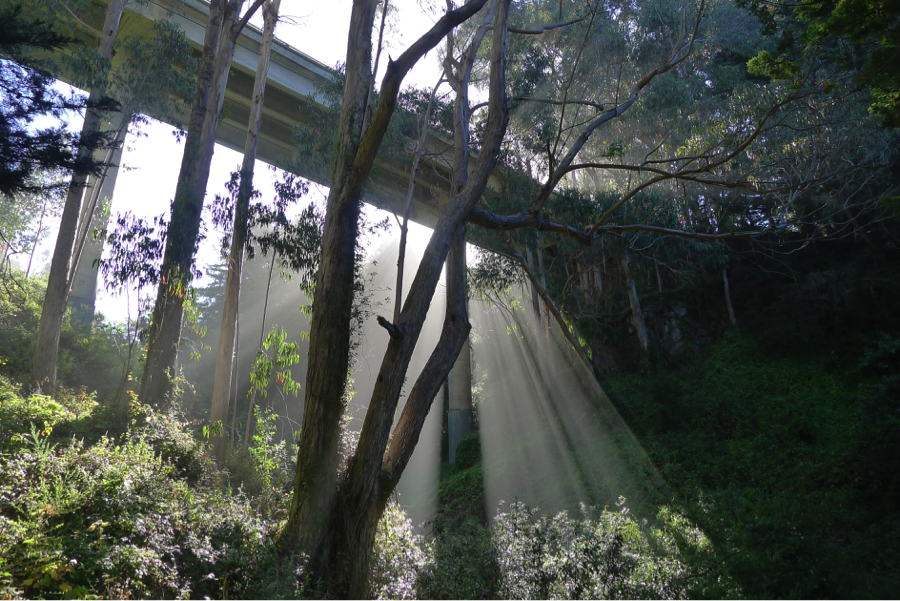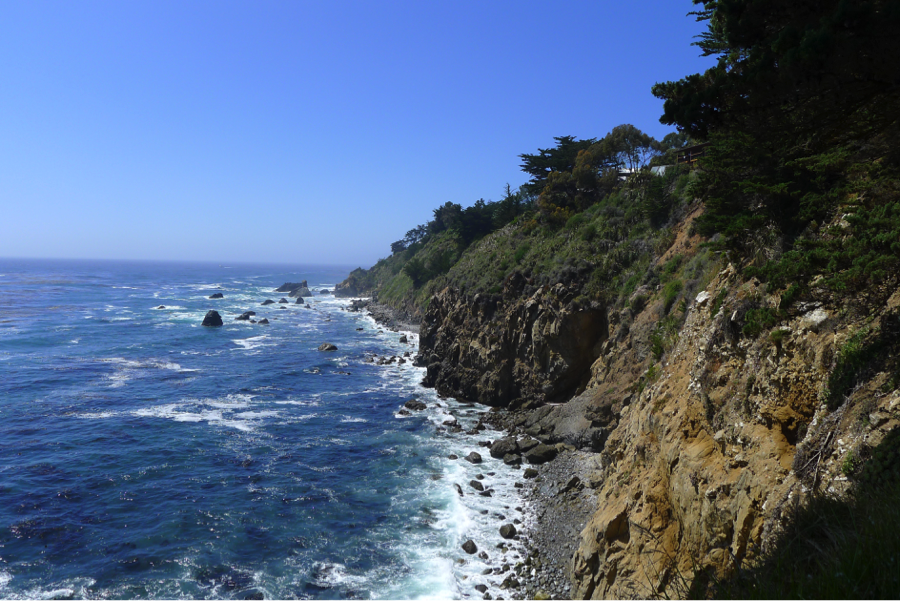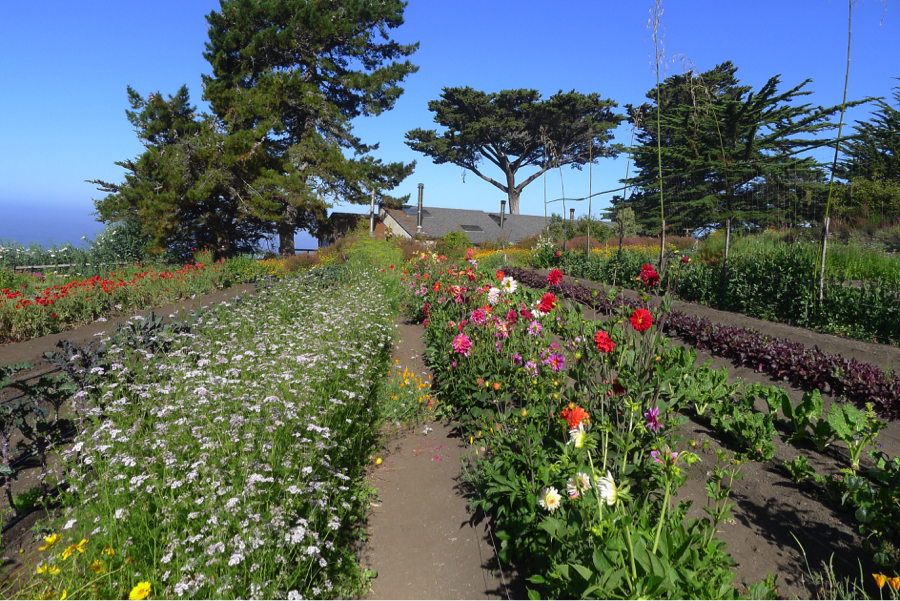Diane Kidder: A Simple Pause

Last summer, I received a travel grant to attend a mindfulness workshop at Esalen Institute in Big Sur, California. Esalen is a retreat and education center that has been around since the 1960’s, working with individuals to integrate the mind, heart, body, spirit, and community. While they offer many types of workshops, the one I attended focused on mindfulness. My time there was spent attending lectures, meditating, and of course, learning about the practice of mindfulness.
The general definition of mindfulness, as given by Christiane Wolf (the facilitator of my workshop) was:
Being in the present moment and to see what is here, and it doesn’t matter what ‘it’ is. Mindfulness is paying attention. It is the awareness that arises when we pay attention moment by moment, non-judgmentally.
It is about focusing on what is currently happening, and not letting worries, etc. about past or future events to overtake our lives; these thoughts often get in the way of acknowledging (and enjoying) the here and now.
During my workshop, we focused on being mindful through our senses. We mindfully ate and really thought about the taste and texture of our food. We went for barefoot walks and considered how the grass felt on our feet. We mindfully listened to others speak (without responding so that we were not considering what we might say, but truly listened to what we were hearing). We also mindfully looked at and listened to the sounds of nature, of which there were many in Big Sur (sea lions barking, waves crashing, etc.).
 My morning run included passing through these redwoods and under this bridge each day. It was easy to be mindful of Big Sur’s beauty.
My morning run included passing through these redwoods and under this bridge each day. It was easy to be mindful of Big Sur’s beauty.
 The yurt where we met each day to learn about mindfulness
The yurt where we met each day to learn about mindfulness
 The Pacific Ocean, with so much to be mindful of: a dramatic landscape with cliffs, deep blue water, sea lions, and beautiful sunsets.
The Pacific Ocean, with so much to be mindful of: a dramatic landscape with cliffs, deep blue water, sea lions, and beautiful sunsets.
 The farm where all of the Esalen fruits and vegetables come from–Another beautiful sight to behold! I walked through the farm each day.
The farm where all of the Esalen fruits and vegetables come from–Another beautiful sight to behold! I walked through the farm each day.
I can see how some might find a whole movement about being fully present to be a bit trivial. But, as I attended this workshop, I realized how much of my time is not spent focused on the present moment. My work with young children involves a great deal of planning to get from one part of the day to the next. Because of this, I am sometimes distracted by the timing of each event that needs to happen, often having thoughts such as, “Music is happening in twenty minutes so the Fours need to start eating their snack.” Yes, as a teacher it is important to have students stick with the schedule, but I also wanted to be more in touch with that beautiful four-year-old way of getting completely caught up in a moment.
We can also be mindful of our current emotional state. This idea in particular is one that I learned in my workshop and I felt that it truly validated my work in the Fours classroom. I work with the students a great deal on understanding their feelings and those of others. Having our students be mindful of their emotions is a reflection of our “Four C’s.”
It takes a creative teacher to make the time to acknowledge the students’ feelings, and then somehow still find the time to fit in that math lesson, art experience, etc. I also believe that taking time to be mindful of our feelings helps the children to understand what citizenship means; while there may only be a few children having what I refer to in the Fours as “big” feelings, it is up to us, as a Fours classroom community, to take part in the betterment of our fellow classmates and to help one another work through our feelings. It also takes courage for the Fours to acknowledge and publicly discuss their feelings when they are not the good and happy ones. In these moments the Fours are asked to use critical thinking to come up with solutions—How do we help our friend feel better? How do we solve this problem fairly? The Fours are given time to analyze information and come up with solutions and, not surprisingly, they are very adept at this.
Lastly, on a personal level, the practice of mindfulness has given me more happiness and less stress. About a week after I attended the workshop, I was on my yearly family trip to a remote lake in Canada. I was in the water with my youngest son, Vince, who was swimming to me and pretending that he was saving me from drowning. He repeatedly jumped off the dock and said, “I’ll save you, Mommy!” He then swam to me, kissed me, and returned to the dock to do it all over again. I found my mind wandering after Vince repeated this scenario a few times, thinking about mundane things like what I might make the kids for lunch and my never-ending “to-do” list. I then remembered to pause and be mindful. I felt Vince’s wet little kiss on my cheek and noticed how black his eyelashes were from the water. I thought about my current emotional state, and that special feeling of bonding with your kids when they are little and they think the world of you. A simple pause to be more mindful changed that moment into a beautiful and memorable one.
Dear Dianne,
I am visiting my daughter in Switzerland (I live in NY) and while reading through your school website in search of a French job posting, I came across your writing.
It’s title “A brief pause” is what drew me in and your description of your retreat experience, of practicing mindfulness and your lovely pictures really had such a wonderful calming effect on me. I have been touring numerous (independent Sch) websites today and sending our cold call letters with my resume so this actually gave my brain a wonderful pause and much needed escape. You are right, we are often caught in the busy-ness of making mental lists instead of enjoying certain moments. Thanks for this beautiful piece. Agnès